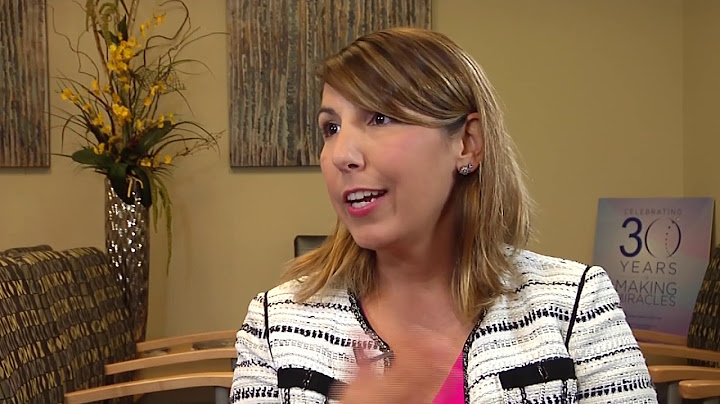Topic OverviewThe amount of time it takes for a woman's full fertility to return after stopping birth control varies for each woman and depends on the birth control method she is using. Your ability to get pregnant gradually decreases as you age, starting at age 25. Poor health and irregular periods may also decrease your fertility. After you stop any form of birth control, you may have a more difficult time getting pregnant simply because you are older than when you started using birth control. Show
If you get pregnant shortly after stopping the Pill, don't worry. Using oral contraception just before a pregnancy doesn't increase the risks of miscarriage or fetal problems. CreditsCurrent as of: June 16, 2021 Author: Healthwise Staff Deciding to start a family is a big decision, but you're (almost) ready. You've quit your birth control and now you want to start trying to conceive. But you've heard that it can take longer to get pregnant after discontinuing birth control. Some, for example, say the signs of ovulation are different after stopping the pill. So how long it will likely take to get pregnant, and when's the best time to stop birth control? We reached out to several experts to help us understand the ins and outs and getting pregnant after birth control. Read on for more. How Long Does It Take to Get Pregnant After Birth Control?While it varies from person to person, for the most part, it's a bit of a myth that it takes a long time to get pregnant after using birth control, says Jill Purdie, MD, OB/GYN and medical director at Northside Women's Specialists. Most people will get pregnant within a normal timeframe after stopping "the pill," she assures—or other forms of birth control. "With birth control pills, rings, patches and implants, once the patient discontinues use of these items, they may become fertile as quickly as two weeks after stopping," says Dr. Purdie. "With IUDs, the return to fertility may be even quicker." This means that, despite popular believes, the chances of getting pregnant the first month off of birth control are very real. The one exception to this is the birth control shot, known as Depo-Provera, which can affect your fertility for a longer period of time, even after you've stopped taking it. "Each shot lasts for three months; however, the return to fertility may be an additional 3 to 6 months longer," Dr. Purdie explains. It's important to keep in mind that whenever we talk about fertility returning and getting pregnant after birth control, there are a lot of elements at work—it has to do with how intercourse is timed, you and your partner's reproductive health, as well as some elements of luck. In other words, fertility isn't just affected by whether or not you recently were on birth control. "Patients may become pregnant anywhere from almost immediately, to two weeks or six months after stopping hormonal birth control methods," Dr. Purdie offers. "Generally speaking, healthy couples have an approximately 25% chance of becoming pregnant each cycle that they try," she says. So that means that it can take couples up to 4 to 5 months of trying, whether they've recently been on hormonal birth control or not. When Should You Stop Taking Your Birth Control?It's common to have irregular periods after you get off hormonal birth control, says Mary Jane Minkin, M.D., and clinical professor of obstetrics and gynecology at Yale University. "Periods can be a bit irregular for the first couple of months, but that doesn't mean you won't get pregnant," she explains. As such, she advises people who are taking hormonal contraception to give themselves a few months to get regular after stopping birth control, and to use a barrier method if they don't want to become pregnant within that time period. Dr. Purdie advises patients to stop taking hormonal birth control around the time that you are ready to get pregnant. "If you complete a pack of birth control pills, remove your patch or ring or have your birth control implant removed, you may potentially ovulate and be able to become pregnant as quickly as two weeks after that time," Dr. Purdie explains. If you had an IUD, that timeframe may be even shorter. "With the removal of an IUD, patients may become pregnant almost immediately depending on the time of the month in which the IUD is removed," Dr. Purdie says. However, if you are someone who uses an injection form of hormonal birth control (Depo-Provera), you will need to give yourself a longer timeframe, says Dr. Minken. Some parents will get pregnant right away after stopping Depo-Provera, but most need a bit more time. "It can even take 6 months, or rarely longer, for the shot to disappear from the body," says Dr. Minkin. "So, I always advise people who would like to get pregnant after immediately stopping their contraceptives not to use the Depo-Provera." Do Different Birth Control Methods Affect Fertility?Studies back up the claims that different birth control methods have only small effects on fertility. A 2018 systematic review and meta-analysis published in Contraception and Reproductive Medicine found little difference in the time it took people to get pregnant based on the type of birth control method—whether barrier methods, IUDs, or hormonal birth control—they had used before trying to conceive. Some studies, however, have found that it may take a few cycles for you to return to full fertility, depending on the type of birth control used. For example, a 2019 study published in The BMJ found that people who stopped taking hormonal birth control pills and contraceptive rings usually returned to fertility in about 3 menstrual cycles and people who used IUDs (copper and hormonal) returned to fertility in about 2 cycles. People who used birth control shots took the longest to return to fertility—about 5-8 menstrual cycles. How Can You Tell If You're Ovulating?After you stop taking birth control, you'll probably be wondering at what point your fertility has started to return. One way to figure this out is by tracking your signs of ovulation. Ovulation typically occurs around 2 weeks after your period, though your periods might not be regular right after you stop birth control. Typical signs of ovulation include:
If you are looking for more definitive proof that you are ovulating, you may want to track your basal body temperature, says Dr. Purdie. "This is a temperature taken first thing in the morning before you get up," she says. "There will be a rise in basal body temperature around the time of ovulation." Another option is to get an ovulation predictor kit, which will usually turn positive the day before you ovulate, Dr. Purdie explains. Are There Any Risk Factors Or Concerns?Taking birth control rarely has any long term impacts on your fertility, assures Dr. Minken. Still, there may be other factors that influence how quickly you can get pregnant after stopping birth control, including common fertility issues such as hormonal issues, thyroid issues, issues with your reproductive organs, and health conditions like endometriosis and polycystic ovarian syndrome that can make conception more difficult. Fertility is a two-way street, and problems with your partner's sperm or sperm production can contribute to fertility issues as well. Infertility is defined as the inability to get pregnant after 12 month of trying. If you are over the age of 35, the American College of Obstetricians and Gynecologists (ACOG) recommend that you visit a healthcare provider if you're having trouble conceiving after 6 months of trying; if you are over 40, it's recommended you see your provider even sooner. For most healthy couples, though, it's just a matter of trying each month, and mustering up a bit of patience, knowing that it's normal for it to take a few months to get a positive pregnancy test. If you are looking to maximize your chances of getting pregnant once you quit birth control and are ready to try, Dr. Minken has some tips: "I would encourage anyone trying to conceive to eat a healthy diet, don't smoke, don't drink, don't take drugs, and do take folic acid supplementation daily to help prevent birth defects." Can you get pregnant right after stopping the pill?The contraceptive pill stops your body from ovulating, but as soon you stop taking the pill this process kicks back into action. So, it's possible to get pregnant as soon as you come off the pill. As many as 84 out of 100 couples will get pregnant within a year of starting to have regular sex without contraception.
How long does it take to ovulate after stopping birth control pills?Generally speaking, ovulation will resume two to four weeks after you stop the pill. It may take a bit longer for older women and women who have been on the pill for a long time, according to Columbia Health. In some cases, re-establishing a regular ovulation cycle can take a few months.
How long should you be off birth control before trying to get pregnant?Birth Control Pills
If you're taking a combination pill (those that have estrogen and progestin), most women's cycles return to normal within 1-3 months, making pregnancy possible quickly. Most women are able to get pregnant within a year of stopping the pill.
|

Related Posts
Advertising
LATEST NEWS
Advertising
Populer
Advertising
About

Copyright © 2024 kemunculan Inc.


















